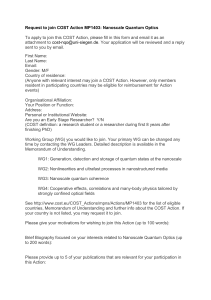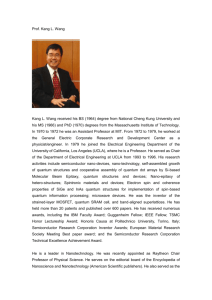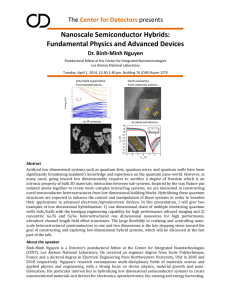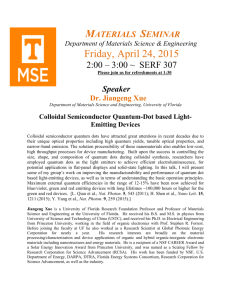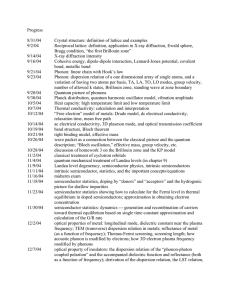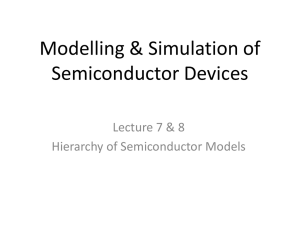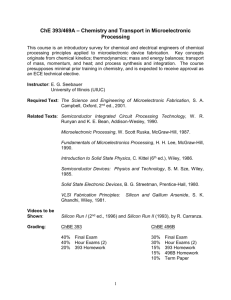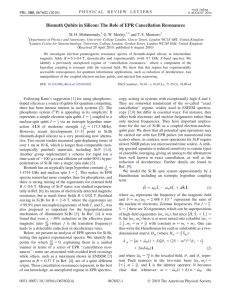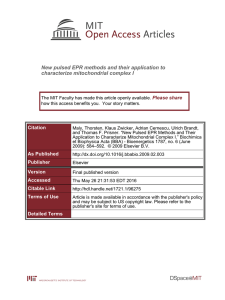Department of Radioelectronic
advertisement
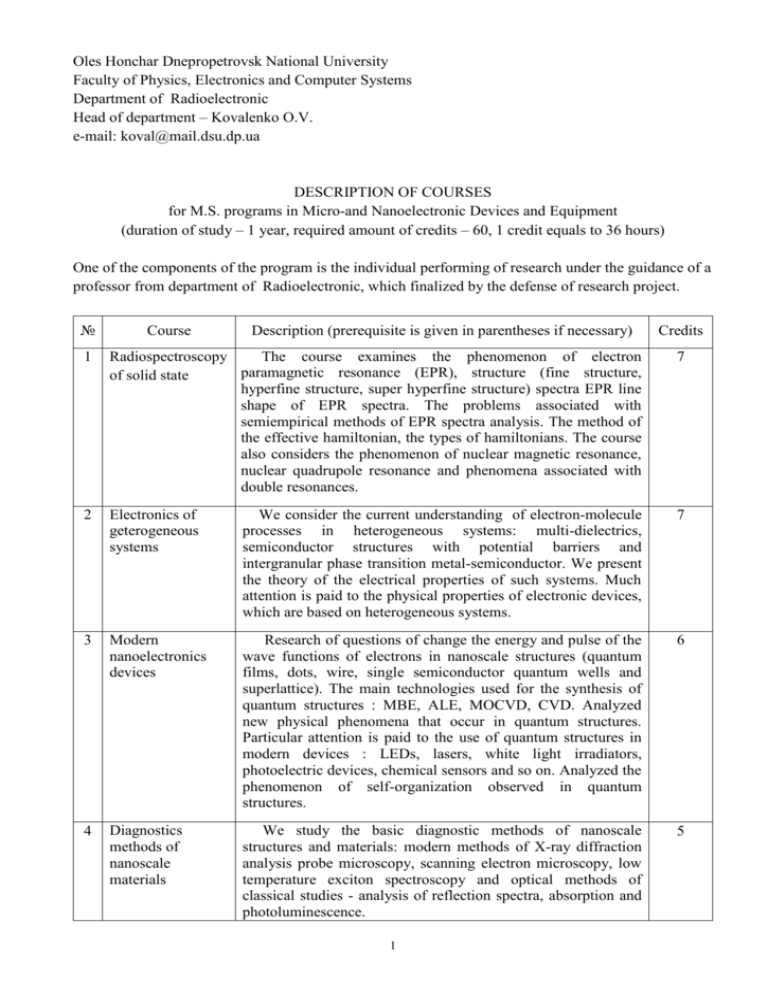
Oles Honchar Dnepropetrovsk National University Faculty of Physics, Electronics and Computer Systems Department of Radioelectronic Head of department – Kovalenko O.V. e-mail: koval@mail.dsu.dp.ua DESCRIPTION OF COURSES for M.S. programs in Micro-and Nanoelectronic Devices and Equipment (duration of study – 1 year, required amount of credits – 60, 1 credit equals to 36 hours) One of the components of the program is the individual performing of research under the guidance of a professor from department of Radioelectronic, which finalized by the defense of research project. № Course Description (prerequisite is given in parentheses if necessary) Credits 1 The course examines the phenomenon of electron Radiospectroscopy paramagnetic resonance (EPR), structure (fine structure, of solid state hyperfine structure, super hyperfine structure) spectra EPR line shape of EPR spectra. The problems associated with semiempirical methods of EPR spectra analysis. The method of the effective hamiltonian, the types of hamiltonians. The course also considers the phenomenon of nuclear magnetic resonance, nuclear quadrupole resonance and phenomena associated with double resonances. 7 2 Electronics of geterogeneous systems We consider the current understanding of electron-molecule processes in heterogeneous systems: multi-dielectrics, semiconductor structures with potential barriers and intergranular phase transition metal-semiconductor. We present the theory of the electrical properties of such systems. Much attention is paid to the physical properties of electronic devices, which are based on heterogeneous systems. 7 3 Modern nanoelectronics devices Research of questions of change the energy and pulse of the wave functions of electrons in nanoscale structures (quantum films, dots, wire, single semiconductor quantum wells and superlattice). The main technologies used for the synthesis of quantum structures : MBE, ALE, MOCVD, CVD. Analyzed new physical phenomena that occur in quantum structures. Particular attention is paid to the use of quantum structures in modern devices : LEDs, lasers, white light irradiators, photoelectric devices, chemical sensors and so on. Analyzed the phenomenon of self-organization observed in quantum structures. 6 4 Diagnostics methods of nanoscale materials We study the basic diagnostic methods of nanoscale structures and materials: modern methods of X-ray diffraction analysis probe microscopy, scanning electron microscopy, low temperature exciton spectroscopy and optical methods of classical studies - analysis of reflection spectra, absorption and photoluminescence. 5 1 5 Microelectronic devices Research of questions of analisys, synthesis and design of microelectronic devices based on a chip of operational amplifiers: amplifier circuit, the circuit generator, detector, logarithmic circuit functionality impedance converters, permanent source of current and voltage converters and regulators output current, comparators, linear and switching regulator of voltage. 5 6 Microprocessor devices of control and processing of information We study the basic information about the hardware methods of communication a PC with a variety of external devices that accept external information. The basic information on software development for such interfaces (programming languages LD, IL, SFC). Analyzes the characteristics of various sensors used in such schemes (motion sensors, flow, temperature, light, etc.). 7 7 Designing, manufacturing technology and design of semiconductor devices and integrated circuits The course examines the questions of design, manufacturing and construction of semiconductor devices based on the integration of different types of chips (semiconductor, thin film, hybrid, etc.). The questions of chip design by the instrumentality of PC. We consider the basic processes used in the manufacture of chips: photolithography, diffusion, epitaxial growth, ion implantation, metallization, etc. 8 8 Microcontroller devices Study principles of construction of microcontrollers, their architecture and specifications, The problems of programming for microcontrollers and modeling of devices based on them, microcontroller programming tools. Some attention given specific examples of the application of microcontrollers. 7 9 Research Individual laboratory or theoretical work under the supervision of a professor from department of Radioelectronic finalized with project defense. 8 2
